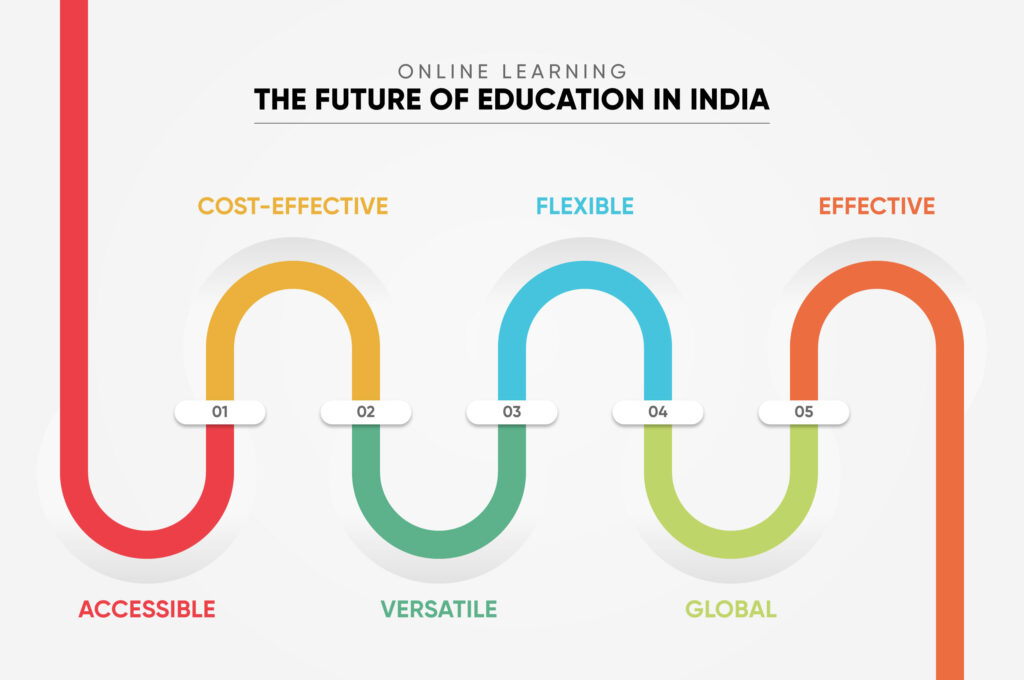While online learning was already on the rise in recent years, the pandemic has dramatically increased our dependence on the platform as means of education. Even traditional schooling is incomplete without supplementing it with the learning material available online be it through educational videos or the boundless information stored in famous websites like Wikipedia. Technology has helped humans do what they do better and is notoriously even known to replace jobs. Will e-learning replace traditional learning? Let’s have a look at several features of online learning that give it an edge over traditional education:

Accessible:
Online learning has enabled people to learn anytime, anywhere. It has transcended social and physical boundaries, especially, for skill-based degrees that do not require any hands-on training. With the internet getting cheaper every day, a growing number of people can access an endless amount of study resources. Many renowned universities like MIT and Harvard have also been taking initiatives to make education more accessible, making much of their course material available online. The government has also taken steps to stimulate the online learning sector in India. As was discussed in the government’s 2020 budget, the government has established National Digital Education Architecture which would strengthen Learning Management Systems running on AI. This would enable online learning in India to be more versatile and accurate.
Cost-Effective:
Even though there are courses online that have a fee structure at par with traditional schooling fee structures, it is, however, also easy to find online courses and study material that are completely free of cost. Online learning is often cheaper compared to traditional schooling because much of the fees in traditional schooling try to cover infrastructural costs. Online learning is also very profitable for teachers as they can resell one lecture to thousands of students while maintaining the look and feel of a one-on-one session.
Versatile:
Online learning as opposed to traditional learning offers a broader range of subjects for its students. The subjects taught in traditional schools are often limited to the scope of boards like CBSE or ICSE they follow. However, with online learning, you can customise your learning experience to cover any field of study, even mix and match completely different subjects to suit your interests and goals.
Flexible:
Create your own schedule, build your own list of subjects to study, and personalise your learning experience. Online learning takes study pressure out of education and enables you to study at your own pace. It also makes study more fun – if dull written text bores you, you can go for interesting infographic videos on the subject or watch informative talks by prominent personalities in the field. Traditional schooling fails in this regard and can’t provide an experience catering to the individual needs of students. The learning experience in a traditional school is also constrained by fixed learning methods and the talents of a single teacher. Socially, traditional learning also weighs heavily on those who hesitate to ask questions or have the lecture repeated for better understanding. Online learning by-passes these barriers by allowing students to ask questions anonymously, watch a specific lecture again to get clarity, or dive in deep into a specific topic for extra knowledge.
Global:
Online learning connects people across boundaries and helps them network while inculcating diverse cultural values. The global scope of learning also allows people to access top-quality education from reputed universities like Oxford or Harvard. It allows students to increase their chances of applying for a study visa and explore job opportunities abroad. Traditional education on the other hand limits us to the physical boundaries of our locality, state, or country, not giving us a chance to look beyond local values and norms. The internet has created an environment where there is a global exchange of ideas and information, helping humanity revolutionise itself every day in various avenues of our life and industry.
Effective
Online learning has been shown to be more effective in helping students learn and even provide a competitive edge to companies. A study by IBM reported that students enrolled in e-learning programs learn 5 times more compared to traditional learning. Online learning also pushes students to be self-motivated and hard-working as they have to be highly self-dependent and proactive to meet their study goals. It develops critical thinking as the students have to find creative solutions to problems on their own without a teacher to supervise their every move. This builds character and skill to manage problems that come in handy as an employee.
Even though online learning lacks in certain areas of education when compared to traditional learning. Online learning seems to be gaining an edge every day with improvements in technology like AI and other remote communication software. Moreover, online education is more effective than traditional education when it comes to student motivation and performance. And we are yet to see what other astounding feats technology has in store for us, revolutionizing the way we learn for good. Need more information on online education? Visit www.theclassofone.com.
